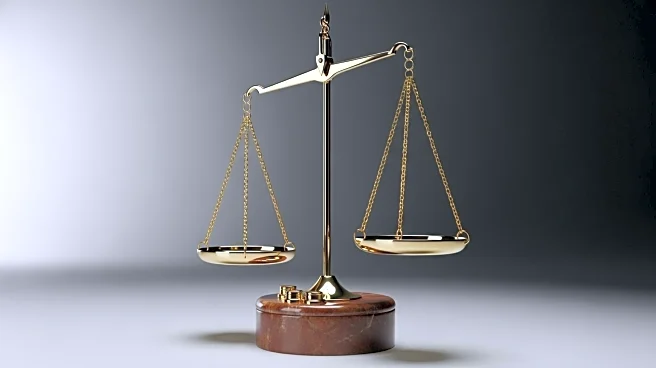What is the story about?
What's Happening?
France's Prime Minister François Bayrou has announced a confidence vote scheduled for September 8, which could lead to the collapse of his centrist government. Bayrou's budget plans, aimed at reducing the public deficit by cutting 44 billion euros in spending, have sparked opposition. The plans include removing two state holidays, a move that has been met with resistance from various political factions. President Emmanuel Macron, who has committed to remaining in office until 2027, may face the task of appointing a new prime minister for the third time in a year if Bayrou's government fails to secure confidence. The political instability comes after early legislative elections last year resulted in a fragmented parliament, divided among minority blocs unable to govern independently.
Why It's Important?
The potential collapse of Bayrou's government could lead to significant political instability in France, impacting the European Union's second-largest economy. The uncertainty has already affected financial markets, with the Paris CAC 40 index experiencing a decline. If Bayrou's government falls, President Macron will need to appoint a new prime minister, which could further complicate the political landscape. The opposition's unified stance against Bayrou's budget plans highlights the challenges of governing in a divided parliament. This situation could influence France's domestic policies and its role within the EU, affecting economic stakeholders and public policy decisions.
What's Next?
If the confidence vote fails, Bayrou and his ministers will be required to resign, prompting President Macron to appoint a new prime minister. Macron may choose a candidate from the traditional left or right to strengthen his centrist alliance, but any new appointee would face challenges due to the political deadlock. Some political figures, including Marine Le Pen, are advocating for new legislative elections to potentially reshape the political environment before the 2027 presidential election. Macron has not indicated whether he will pursue this option, leaving the future political direction uncertain.
Beyond the Headlines
The ongoing political instability in France raises questions about the effectiveness of centrist governance in a fragmented political landscape. The situation underscores the difficulties in implementing fiscal reforms amid widespread opposition. The potential resignation of Bayrou's government could lead to shifts in France's domestic and foreign policy priorities, affecting its influence within the EU. The political deadlock may also prompt discussions on electoral reform and coalition-building strategies to ensure more stable governance.















